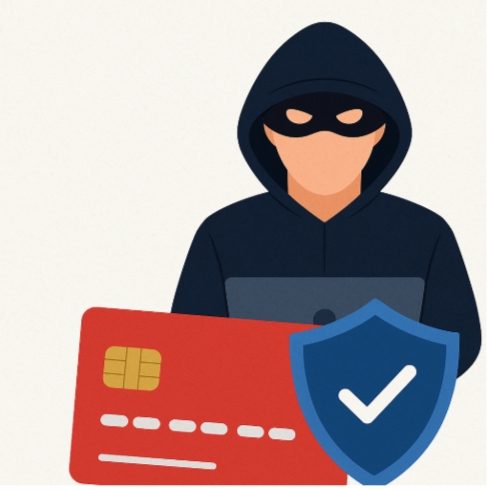Introduction
With the rise of digitalization, shopping habits have rapidly changed, and credit cards and online payment systems have become an indispensable part of daily life. However, this convenience has also created new opportunities for fraudsters. Credit card information is increasingly being stolen or misused through fake online platforms. This article explores the legal aspects of credit card and online payment fraud, outlines the remedies available to victims, and explains the relevant legal regulations in Turkey.
- What is Credit Card Fraud?
Credit card fraud involves obtaining and using someone’s credit card information without their consent or creating fake cards to gain unjust profits. Common methods include:
- Phishing: Fraudsters send fake emails or messages to trick users into sharing their card details.
- Skimming: Card data is copied through devices attached to POS terminals.
- Fake sites/apps: Fraudulent websites or apps mimic real e-commerce platforms to deceive users.
- Data leaks: Information is stolen through breaches in online shopping platforms.
- Fraud in Online Payment Systems
Fraudulent activities also occur through online payment systems (such as PayPal, iyzico, Papara, FAST, etc.). Common examples include:
- Receiving payment for fake products and then cutting off communication,
- Accepting payments for items or services that are never delivered,
- Registering on payment platforms using fake documents.
- Evaluation Under Turkish Penal Code (TPC)
Credit card fraud is explicitly regulated under Article 245 of the Turkish Penal Code:
TPC Article 245/1: “Anyone who obtains another person’s bank or credit card and uses it without the consent of the cardholder or the bank shall be punished with imprisonment and a judicial fine.”
Additionally, Articles 157 and 158, which regulate “qualified fraud,” apply when fraud is committed via the internet or other IT systems.
- What Should Victims Do?
If an individual becomes a victim of credit card or online payment fraud, they should take the following steps:
- Contact the Bank Immediately
Cancel the card and file a transaction dispute as soon as the fraud is detected. - File a Criminal Complaint
Submit a complaint to the Public Prosecutor’s Office, along with evidence such as receipts, screenshots, and correspondence with the bank. - Apply to the Banking Regulation and Supervision Agency (BDDK) or Consumer Arbitration Board
If the bank refuses to cover the loss, file a complaint with the BDDK or the Consumer Arbitration Board. - Report to the Cyber Crimes Unit
Contact the Cyber Crimes Unit of the General Directorate of Security.
- Legal Liability of Banks
Unless there is gross negligence on the part of the cardholder, the bank may be held responsible for the fraudulent transaction. According to Article 12 of the Law on Bank Cards and Credit Cards (Law No. 5464), the liability of the cardholder is limited to 150 TL. If the bank has failed to implement adequate security measures, the liability may shift entirely to the bank.
Conclusion
Credit card and online payment fraud is one of the most common cybercrimes in the modern world. Prompt legal action and proper management of the remedy process are essential. It must be remembered that the protection of property, a fundamental right of every individual, is also legally safeguarded in the digital world.

Yanıt yok